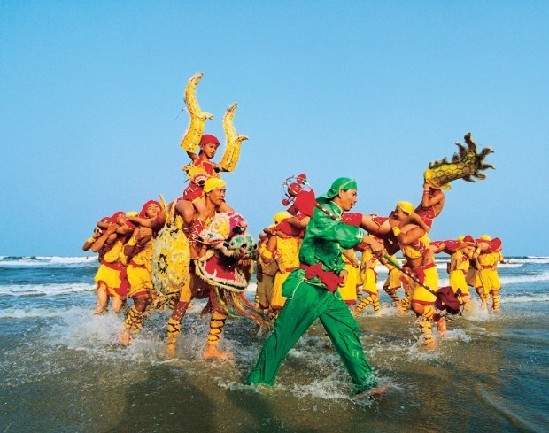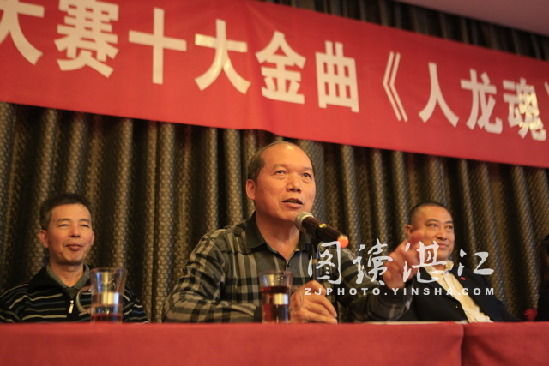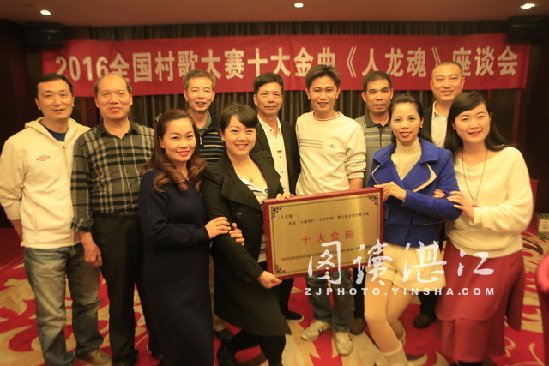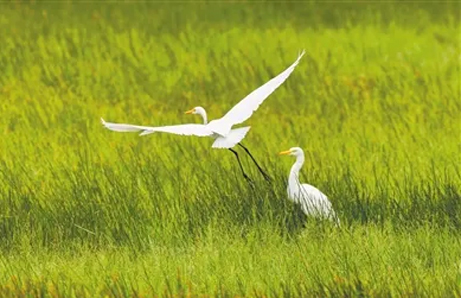Home> Arts and Traditions
Zhanjiang village ballad honored
A song created by a writer from Zhanjiang celebrating the 400-year-old tradition of dragon dance has been named as one of the top 10 village ballads in China.
The song, Soul of Human-Dragon, was selected out of 387 entries at the awarding ceremony of the eighth National Village Ballad Competition held on Dec 11, each displaying distinct characteristics of individual areas across the country.
 |
|
The human-dragon dance in Zhanjiang, Guangdong, is a national-level cultural legacy. [Photo / Zhanjiang.gov.cn] |
Written by Zhou Chonglian, president of the Zhanjiang Music Literature Association, the song is sung in the Leizhou dialect and has been adapted from the dragon dance known as the "Unique Art of the Orient", which originates from the late Ming and early Qing dynasties (1368-1644).
The dance has been included in the national intangible cultural heritage list, and involves men standing in a row acting as the dragon's feet and children aged 12 or 13 sitting on their shoulders. It is performed on the beach and accompanied by drums, gongs and trumpeting, as if there was a real dragon coming out from sea.
 |
|
Zhou Chonglian, the songwriter of the Soul of Human-Dragon talks about how he wrote the song. [Photo/zjphoto.yinsha.com] |
Both of the artworks are the product of the traditional art nurtured in Dongshanyu village, Donghai Island, situated on the eastern Leizhou Peninsula.
The artistic value behind the song and how it helps to achieve the distinction were discussed at the meeting organized by the Zhanjiang Cultural Center on Dec 25, with more than 50 musicians and officials in attendance.
 |
|
The team that created Soul of Human-Dragon takes a picture with a plaque which reads "Top 10 Village Ballads in China" on Dec 25. [Photo/zjphoto.yinsha.com] |
Zhou, who was presented with a gold award for songwriting at the competition, spoke of his experience in creating the melody.
"The lyrics are simple and easy to understand and sing. The local cultural distinctions behind the song coincide with the original dance," Wang Zhiqiang, the floor director at the village ballad competition commented in his congratulation letter.

 Print
Print Mail
Mail 5G construction supports Zhanjiang's high-quality development
5G construction supports Zhanjiang's high-quality development
 Acting mayor inspects project construction in Xuwen, Leizhou
Acting mayor inspects project construction in Xuwen, Leizhou Zhanjiang island an "egret paradise"
Zhanjiang island an "egret paradise"  Dancing egrets add vitality to Xiashan
Dancing egrets add vitality to Xiashan